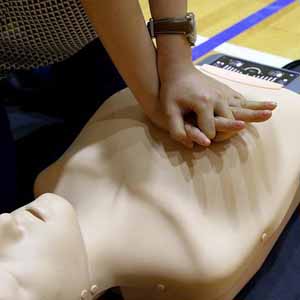Out of hospital cardiac arrest during COVID-19 pandemic: A retrospective study from north east of Italy

Accepted: 12 July 2022
All claims expressed in this article are solely those of the authors and do not necessarily represent those of their affiliated organizations, or those of the publisher, the editors and the reviewers. Any product that may be evaluated in this article or claim that may be made by its manufacturer is not guaranteed or endorsed by the publisher.
Authors
The novel coronavirus disease 2019 (COVID-19) outbreak affected the epidemiology and the outcomes of Out-Of Hospital Cardiac Arrest (OHCA). We performed a retrospective observational study in the Western district of Vicenza (Veneto, Italy) to evaluate patients affected by non-traumatic OHCA and we analyzed epidemiological and clinical characteristics associated with sustained Return Of Spontaneous Circulation (ROSC). We collected 114 cases from January 2019 to May 2021 and we compared data of the pre-pandemic period (2019) with the pandemic one (2020-2021). During the pandemic we found an increase of bystander CPR, of OHCA with a cardiac cause and of shockable presenting rhythms. All these observations weren’t associated with an increase of sustained ROSC, which could be determined by both the reorganization of the health care system with the reduction of medical screenings and by the interruption of training courses reducing the efficacy of cardiopulmonary resuscitation. On the other hand, the higher percentage of presenting shockable rhythm reinforces the importance of bystander rule and of short time to start CPR.
How to Cite
PAGEPress has chosen to apply the Creative Commons Attribution NonCommercial 4.0 International License (CC BY-NC 4.0) to all manuscripts to be published.

 https://doi.org/10.4081/ecj.2022.10436
https://doi.org/10.4081/ecj.2022.10436








